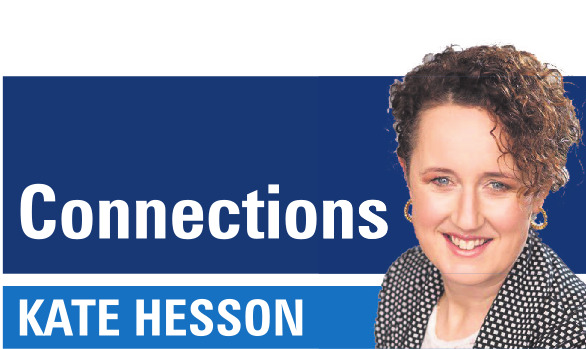
The past couple of years have disconnected many of us from what we felt was important, including the people we work with. Whether we are back working on site fulltime, working remotely or in a hybrid situation between the office and home, how well we connect with our co-workers affects our mental health and ability to do our job well.

All relationships including those with our coworkers change over time. You will find some connections feel different, as both you and your colleagues may have grown or shifted priorities during the pandemic. Oprah Winfrey once said: "Surround yourself only with people who are going to lift you higher."
While we can choose who we spend time with in our free time, we don’t often get to choose who we work with. It has been estimated that the average person will spend one-third of their life at work, roughly 90,000 hours over your lifetime. So it is in our best interests that we learn how to have good relationships with the people we must spend time with at work.
Conflict in the workplace
Conflict in the workplace is inevitable; whether it is a minor disagreement with a team member about when to take breaks or a problem with your boss that could affect your job security.
It can happen during regular events like end-of-year reviews or out of the blue after you lose a major contract. Where conflict is not well managed it can intensify and spread, affecting more than the two individuals originally involved, to affect a group of people and sometimes the whole workplace.
It causes considerable stress and, in turn, mental health issues. That influences how we think and feel about ourselves and others, how we interpret events, communicate, behave and sustain relationships and our ability to cope with change.
This further impacts on our ability to do our job and relate to our co-workers well. We get trapped in a vicious cycle of conflict.
The biggest tip we can give you to avoid (or to get out of) this cycle is to resolve any issues you have directly with co-workers, as soon as possible. This can be easier said than done, especially if you are dealing with a person who has more power than you.
Maybe they are higher up the management structure so they can make decisions that affect your role or workload. Or perhaps they are at the same level as you (or lower), but they have been in your organisation longer and have formed protective alliances.
It was perhaps easier to avoid issues with your co-workers, and, conversely, harder to resolve them when everyone worked from home. However, now the "Great Return" to work is under way, issues are beginning to surface.
For example, there are particular tensions between different age groups. Millennials and Gen Z have very different expectations as to how they want to live and work. This can cause friction with older colleagues used to doing things differently. With the increase in flexible working patterns, this will be an ongoing source of differences.
What managers can do
Managers are coming under considerable pressure adapting from supervising remote teams to dealing with hybrid working. When conflict arises within their team, they need the skills and confidence to address it. Here are some tips managers can use to reconnect teams and reduce conflict:
— Make opportunities to reconnect with your team throughout the week. Allow time at meetings to "catch up". The name "small talk" is a misnomer because the part it plays in enabling good relationships cannot be overestimated. Also, don’t be shy about showing your appreciation of your people and their mahi.
— Maintain these connections. Make these opportunities regular, emphasise they are important and that you expect people to attend except in exceptional circumstances.
— Communicate clearly and consistently. Poorly communicated messages quickly affect morale and how well your team functions together. Giving messages through various methods and reinforcing key messages repeatedly (such as face-to-face conversations, team meetings or chat groups) will keep communication a high priority. This helps to dispel rumours and assumptions which can fester when there are gaps in information.
What every employee can do
At an individual level, having a trusted coach by your side can help make sure your mental health does not suffer as you manage workplace conflict. A coach helps you gain clarity about what’s going on and how you can navigate the situation. As a neutral outsider, they help you see things for what they are and give you strategies on how to deal with them. A session with a coach can help you find a way forward through the emotional fog that gets in the way of you making good decisions.
You can have confidential and off-the-record conversations with them. They can help you structure the conversations you need to have with your co-workers so you can explain your perspective and the impact upon you. This can also be helpful if you have been working from home to avoid a difficult situation, but your boss wants you to return to the workplace.
As Mental Health Foundation chief executive Shaun Robinson says: "Wellbeing isn’t just for people who have not experienced mental illness — it’s for everyone."
Mental health issues have been exacerbated by isolation and the uncertainty created by the pandemic and the resulting changes to our traditional workplaces.
More of us are speaking up about our mental health issues (even on LinkedIn), as we are increasingly aware of our right to be heard and there is a greater awareness of wellbeing at work. Learning skills on how to manage conflicts between our co-workers will help us to manage our stress levels at work and have a positive effect on our overall wellbeing and mental health.
— Kate Hesson is a senior resolution practitioner at Fair Way Resolution.












